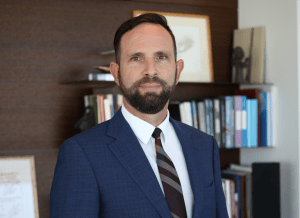Vital Capital managing partner Nimrod Gerber looks at why many private equity heavyweights have failed to make serious inroads in Africa, despite the huge opportunities on offer on the continent – and explains what firms need to change in their strategies for dealmaking, exits and understanding the hugely varied regional and country-specific markets.
Several years ago, some of the biggest names in global private equity flocked to Africa, driven by rising social consciousness and lured by untapped opportunities among the world’s youngest and fastest-growing population. They arrived with a gameplan that had worked elsewhere – one that relies on substantial financial leverage, sizeable deal-flow, and a clear exit strategy.
Those PE giants played by the book, but they failed because their gameplan didn’t account for the realities of Africa’s unique landscape. It wasn’t long before local teams were disbanded, funds were closed, and ambitions tapered – all before investors got a taste of the strong returns offered by the continent’s then-undiscovered high-growth, high-impact companies.
A cautious approach has prevailed, exacerbated by macroeconomic and geopolitical factors. Funds that have entered Africa more recently have experienced uneven performance, surely deterring some who’d simply rather play it safe.
And yet, there is clearly still appetite for dealmaking in Africa. Although private capital deal volume experienced a hiccup in the third quarter of 2023, according to AVCA, it remains higher than pre-2021 figures. Year to date, 2023 is on track to become the third record year historically. So, what’s needed right now is a more effective playbook for investing success in Africa, a playbook that pushes past the misperception that risks in these markets outweigh potential benefits.
Rethinking old models
Since results have proven that conventional PE wisdom does not work in Africa, it’s time for investors to take a cue from the general partners (GPs) who have had real staying power on the continent.
By no coincidence, they are the ones who have tossed the traditional private equity gameplan in favor of a more flexible, thoughtful playbook. That playbook, among other things, centers on greenfield opportunities, a control strategy, and an adaptable approach to exits.
Greenfield opportunities
A willingness to build “from scratch” is important in Africa, and more investors are beginning to recognize this. In 2022, six of the world’s top 15 greenfield investment megaprojects – those worth more than $10 billion – were in Africa, according to UNCTAD’s World Investment Report 2023.
Africa’s vast natural resources, its sustainable agriculture potential, its role in the global energy transition, and its growing population of young, tech-savvy consumers offer soaring opportunities.
It is the GPs with deep African operational expertise and local insight who can identify key market gaps and develop overlooked greenfield opportunities in essential sectors – creating successful, scalable businesses that can maximize impact. African operational experience matters deeply in this context. It is crucial to working at ground-level with local communities, business leaders, and key decision-makers; to customizing operations according to local demands; to future-proofing the business model for the next generation of employees and customers; and to adequately managing the risks and costs that come with greenfield investments. With direct involvement in the venture, the GP must be well-versed in the nuances of African business. In the case of physical construction and facilities, they must have extensive prior experience with engineering, procurement and construction (EPC) for similar projects, as well as experience in optimizing day-to-day operations of similar businesses across the value chain.
Control strategy, rather than a focus on leverage
The continued growth in mid-market deals – which hit a record high in 2022 – remains fundamental to unlocking the growth potential of Africa’s rising economy. Last month’s acquisition by Amethis, AfricInvest, Proparco and IFC of a majority stake in Netis, a pan-African telecommunication and energy infrastructure service provider, is but one recent example of deal activity in this vibrant segment of the market. Such GPs must have the tolerance and capacity for smaller and medium-sized business assets. And critically, they must understand that revenue growth will drive returns in the African context – not debt or multiples expansion. Investors can’t rely on massive leverage here and need to factor in currency depreciation.
A control position in the company – not just a board seat – is the best way to succeed in this environment. As majority shareholder, the GP can take a hands-on investing approach – working with portfolio companies to bring in new management, if needed, and to enact wholesale change. Ultimately, majority shareholders can drive the agenda and control execution risk, improving financial control systems, strengthening value chains, and enhancing productivity. What’s more, from an LP perspective, this means GPs are more accountable; in a control environment, they are ultimately and, undoubtedly, responsible for the underlying assets’ performance.
A controlling stake also means these investors can drive impact goals, from job creation and improving gender equality to decarbonization. That solid foundation helps generate positive outcomes that outlast the investment timeline.
An adaptable approach to exits
Undeniably, the limited exit opportunities, including a muted IPO market, remains a major obstacle for PE investment in Africa.
Successful Africa-focused GPs are not constrained by PE’s typical five-year holding timeframe. Since there is no option for piling on big leverage, revenue and margin growth are the core value drivers – and those take time.
But patience does pay off. Once GPs have driven real growth sufficiently, they can consider all available options. Trade buyers have so far made up a substantial (56%) and growing percentage of total exits in 2023, while sales to PE firms and other financial buyers account for one-third, according to AVCA’s Q3 report.
Recent examples of successful exits abound among investors who have been willing to ignore the mainstream PE playbook. For example, take a look at AfricInvest that led a $7 million Series A funding round in 2019 for Tunisia-founded InstaDeep, an AI start-up whose shareholders have exited the whole company for up to $683 million; or Vital Capital’s investment in urban communities’ platform Kora Housing. During our eight-year ownership of greenfield investment Kora, more than 20,000 affordable homes were built across six cities – housing more than 100,000 individuals. Upon exit, Kora had proven strong execution capabilites, even though it did not tick any of the traditional PE checklist boxes at the time of our investment.
Bridging the disconnect to grow African investment
Development Finance Institutions (DFIs) have long served as a major source of capital for African private equity, helping to fuel infrastructure finance and ESG-aligned investing on the continent. Now, Africa needs a more diverse financial ecosystem. Local institutional investors – such as pension funds and insurance companies – may be part of the answer, but luring them requires bridging the disconnect between risk perception and reality.
A uniquely African playbook is required for success. This playbook hinges on the distinct approach to greenfield opportunities, controlling stakes, and investment exits described above. The sooner GPs realize that replicating a foreign strategy will set them up for failure in Africa, the sooner they can showcase this market’s fundamental strength for building businesses and realizing profits. Only then can the industry flip the narrative of African private equity, revealing a virtuous cycle of ever-growing investment and impact.
Copyright © 2023 AltAssets



























